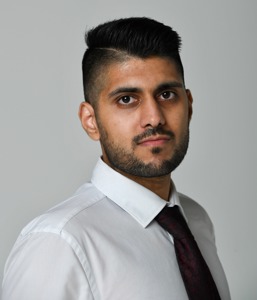
Isaan Khan
Daily Mail, Mail Online and Mail Plus
Among them were a painstaking six-week undercover investigation as an NHS 111 call-handler exposing a system denying elderly patients pain relief before death, an emotive joint-interview with two bereaved fathers who lost their daughters to suicide, and an expose of a paedophile cricket coach who was allowed to coach children for six months.
Overall, the pieces uncover findings that would’ve remained hidden to the public, and show complete variety — featuring an investigation, an interview and a news story.
Firstly, he worked as a call-handler at a 111 call centre after undergoing relevant training. The investigation was solely Khan’s work — colleague Sam Greenhill helped guide him.
Khan’s inquiry came after a health professional raised concerns to him about patients denied medication (on weekends and evenings) because of a system pathway fault. The whistle-blower had witnessed an elderly patient denied pain relief — they died in agony, the family were unaware.
On his shifts Khan discovered distraught patients, including delayed medication for an end-of-life patient who was struggling to breathe and died days later.
The other call-handlers spoke of colleagues on sick leave because of stress, and confusion with the pathway system. As a result the NHS faced severe scrutiny, numerous MPs demanding further action and the matter raised to Health Secretary Steve Barclay.
A further representation of Khan’s public service journalism is an expose of paedophile cricket coach Michael Strange.
The England Cricket Board (ECB) disqualified Strange from cricket in April 2006, but Khan found in July 2023 that they had never contacted police about conducting an investigation.
This was despite Strange being first convicted to a six-year sentence in 2012, before three further prison terms. He had sexually abused six survivors.
Following Khan’s approach about a safeguarding report the ECB had failed to publish, the governing body contacted police to discuss opening a probe. A week later, he found Northumbria Police had initially failed to notify the ECB about the allegations against Strange. This left the paedophile free to train children for six months. Days after, the ECB confirmed to Khan that a probe would be opened. Police are now investigating claims from a seventh survivor. A final representation of his writing ability is the Father’s Day joint-interview with Ian Russell and Mariano Janin — still the only interview to be done with the pair. Their teenage daughters had both committed suicide, their deaths linked to social media.
Khan clearly had to approach the interview with absolute care. This is reflected by the extent he got the fathers to open up, both sharing never-before unearthed details about the deaths including the trauma of discovering their daughters’ bodies, the flashbacks suffered, and the suicide notes.
Mariano also revealed his anguish suffered by the Metropolitan Police’s loss of potentially vital digital evidence.
It truly is a harrowing read, and one which Khan delivered effectively through an engaging writing style.